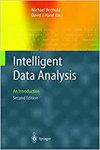A systematic review on recommendation systems applied to chronic diseases
IF 0.8
4区 计算机科学
Q4 COMPUTER SCIENCE, ARTIFICIAL INTELLIGENCE
引用次数: 0
Abstract
A large percentage of the worldwide population is affected by chronic diseases, leading to a burden of the patient and the national healthcare systems. Recommendation systems are used for the personalization of healthcare due to their capacity of performing predictive analyses based on the patient’s clinical data. This systematic literature review presents four research questions to provide an overall state of the art of the use of recommendation systems applied to the healthcare of patients with chronic diseases. Disease management was identified as the main purpose of the systems proposed in the literature. However, few solutions provide support to physicians in the clinical decision-making. Ontologies and rule-based systems were the artificial intelligence techniques most used in the systems since they can easily implement clinical guidelines. Current challenges of these systems include the low adherence, data sparsity, heterogeneous data, and explainability, that affect the success of the recommendation system. The results also show that there are few systems that provide support to patients with multiple chronic conditions. The findings of this literature review should be considered in the development of future recommendation systems that aim to support the management of chronic diseases.慢性疾病推荐系统综述
世界上很大一部分人口受到慢性病的影响,给患者和国家卫生保健系统带来负担。推荐系统用于个性化医疗保健,因为它们能够基于患者的临床数据执行预测分析。这个系统的文献综述提出了四个研究问题,以提供使用推荐系统应用于慢性疾病患者的医疗保健的整体状态。疾病管理被确定为文献中提出的系统的主要目的。然而,很少有解决方案能在临床决策中为医生提供支持。本体和基于规则的系统是系统中使用最多的人工智能技术,因为它们可以很容易地实现临床指南。这些系统目前面临的挑战包括低依从性、数据稀疏性、异构数据和可解释性,这些都会影响推荐系统的成功。结果还表明,很少有系统为患有多种慢性疾病的患者提供支持。本文献综述的发现应考虑到未来的推荐系统的发展,旨在支持慢性疾病的管理。
本文章由计算机程序翻译,如有差异,请以英文原文为准。
求助全文
约1分钟内获得全文
求助全文
来源期刊

Intelligent Data Analysis
工程技术-计算机:人工智能
CiteScore
2.20
自引率
5.90%
发文量
85
审稿时长
3.3 months
期刊介绍:
Intelligent Data Analysis provides a forum for the examination of issues related to the research and applications of Artificial Intelligence techniques in data analysis across a variety of disciplines. These techniques include (but are not limited to): all areas of data visualization, data pre-processing (fusion, editing, transformation, filtering, sampling), data engineering, database mining techniques, tools and applications, use of domain knowledge in data analysis, big data applications, evolutionary algorithms, machine learning, neural nets, fuzzy logic, statistical pattern recognition, knowledge filtering, and post-processing. In particular, papers are preferred that discuss development of new AI related data analysis architectures, methodologies, and techniques and their applications to various domains.
 求助内容:
求助内容: 应助结果提醒方式:
应助结果提醒方式:


